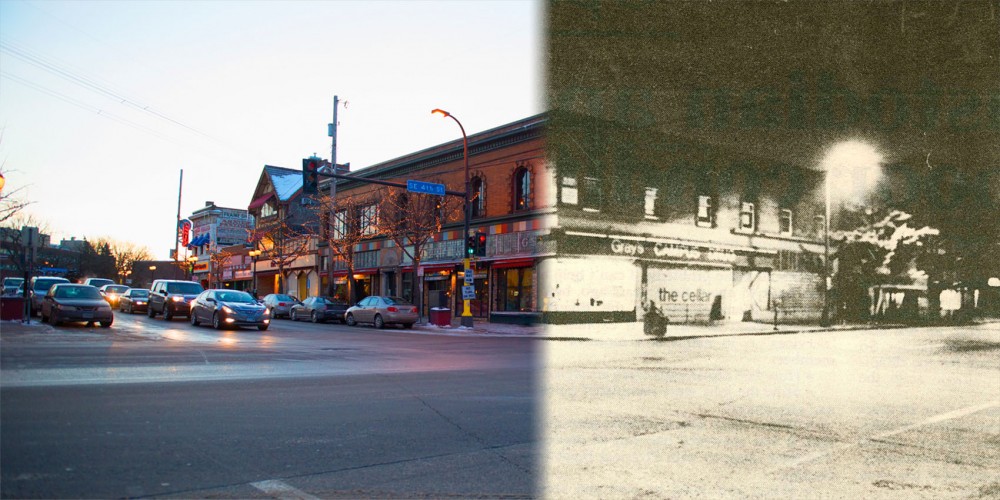Ten Dinkytown property owners say the city and business leaders have excluded them as the district continues to outline its future with a burgeoning small-area plan.
The Dinkytown Property Owners Group organized after the possibility of obtaining historical designation for the four-block business hub arose in November.
In a letter to the city, the group said plan organizers have ignored them throughout the process and believe any historical status would diminish the value of their properties and prevent future development.
“Any such designation should be made with precision so that it applies only to properties truly worth saving,” the letter said, “and that any attempt to place a designation on the entire area would be a mistake.”
The Dinkytown Business Association and Minneapolis principal city planner Haila Maze have been meeting weekly for nearly a year to discuss the small-area plan.
DBA interim President and Burrito Loco owner Greg Pillsbury said all the gatherings have been open to the public and they have invited signees of the letter.
“They decided not to come to our meetings,” Pillsbury said. “I’m not sure how you’re ignored if you are invited to a meeting and don’t go. I don’t think that has any merit.”
The letter also said, “rezoning the area to a C3A zoning district — the highest-density mixed-use district — is essential for this area.” That level of zoning is necessary for developers to build large housing complexes with groundfloor retail space.
Maze, the small-area plan’s lead author, said she has included the requests of the property owners in working drafts of the
plan.
The most recent draft included a map greatly expanding C3A mixed-use space and requires two-thirds of the property owners to agree to any historical designation.
Maze said the city will continue to take public comment until the Minneapolis City Council votes on the Dinkytown plan in March.
Weighing historic designation
Currently, the plan recommends considering both local and national historic designations, but the difference between the two is hazy.
Maze said local designation is restrictive because the Heritage Preservation Commission monitors it and creates “regulatory hoops” for simple procedures like changing windows.
National designations don’t trigger committee oversight, she said, and are largely superficial.
“Is national designation just something honorary on paper? The answer is actually yes,” Maze said.
Doran Companies spokesman Curt Martinson has been working with business and property owners on behalf of the developer. Owner Kelly Doran was one of the 10 who signed the letter.
“The property owners are very afraid of any type of historical designation,” Martinson said at the last DBA meeting in December.
Also among the property owners group is Jason McLean, who owns Varsity Theater and Loring Pasta Bar. He said he’s concerned historic designation could have blocked him from renovating the drug store he bought in 1999.
“When I took over Gray’s [Campus Drug], it was in a state of disrepair,” he said. “Everybody likes what I’ve done with the pasta bar — with a historical designation, that wouldn’t be possible. It stymies the artistic liberties you can take.”
Darrel LeBarron, who owns the 120-year-old firehouse Station 19 — that now houses Buffalo Wild Wings — said historical listings only protect the structure of the buildings and that the inside can be altered for “adaptive
reuse.”
LeBarron said Station 19 has multiple historical designations, including a listing on the National Register of Historic Places, because it is one of two original Minneapolis fire stations still standing and the self-proclaimed birthplace of amateur
softball.
“They realized that if you were going to save the building, you had to be allowed to change the inside,” he said. “We had total design freedom on the inside.”
LeBarron said the building has come close to being torn down throughout the years, but the Prospect Park East River Road Improvement Association has been adamant at keeping the historical landmark status.
“They have been terrific to work with through the years; they deserve all the credit,” he said. “It wouldn’t be there today if it wasn’t for the neighborhood group.”








